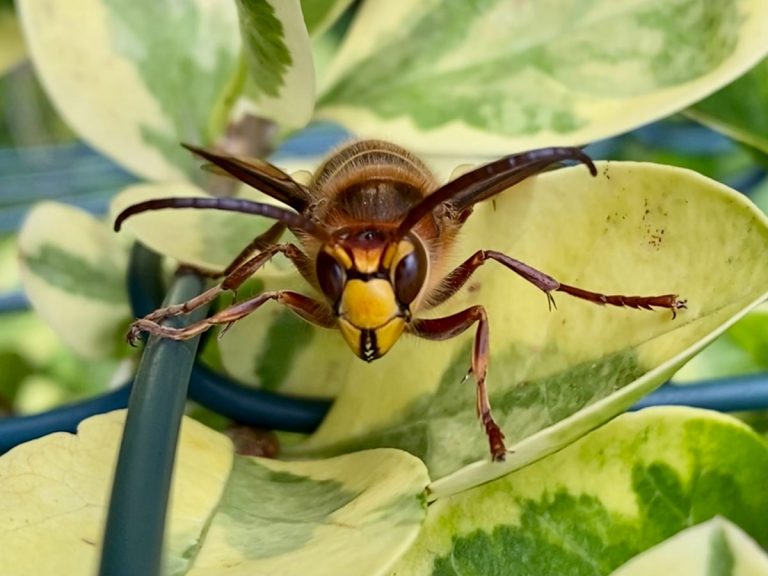Asian giant hornets: how dangerous are they?
The insect, which has been described as a giant ‘murder hornet’ and is commonly known as the Asian giant hornet, is the world’s largest species of hornet with a body length of around two inches. Although native to certain parts of Asia, the hornets are now being found in other parts of the world. Some experts think that the claims being made of the threat the species represent may have been sensationalised, but why then, have they been nicknamed murder hornets, and should we be afraid?
What exactly are these murder hornets?
The Japanese media has referred to the flying insect as ‘murder hornets’ for many years, but the term gained global recognition after a New York Times article that was published in May 2020 used the same term. The article was based on the report of a beekeeper, Ted McFall, who had spotted a mass of our common bee’s carcases all over the ground with their heads torn from their bodies.
The murder hornets, or Asian giant hornets, are predator to bees as they feed their young with the bees’ thoraxes, which is why they decapitate the bees as a part discarded. With a potent venom, an ability to spit it, and stinger long enough to puncture a beekeeping suit, they aren’t much welcomed by us humans, either. Although there is no evidence to suggest that they want to sting us, in fact they are not typically aggressive to humans unless threatened, much like bees. In Japan, these hornets kill up to 50 people a year, which in the grand scheme of things, is quite rare. These facts support the case that these giant hornets are considered a much greater threat to the bee population than to humans.
The hornet nest found in Washington
In December 2019, after the first hornets appeared in the state of Washington, US, state officials asked the public in April to report sightings of these hornets before they bred and established themselves in the country, which could have the potential to kill bee populations.
On 22 October 2020, the first one of these giant hornet nests ever in the US was found in Blaine, Washington, after the Washington State Department of Agriculture (WSDA) spent months of trapping and searching for them. Entomologists first attached radio trackers to the hornets that were found in order to track and follow them back to their nest, which was finally found inside the cavity of a tree. Normally however, Asian giant hornets nest in the ground, but a dead tree seems to be the occasional home base too.
“Ladies and gentlemen, we did it,” a spokesperson in Washington publicly announced. The removal of the nest, according to a statement by the WSDA, “appears to have been successful.” They added that the pest program “vacuumed numerous specimens out of the nest,” and with permission from the land owner of which the bees were found, may entirely take out the tree.
The bee hungry creatures have not shown much trouble in the UK. However, it is not uncommon for the transferral of insects to be accidentally moved around by the importation and exportation of goods such as timer, soil, flowers or fruit. Here’s how you can know whether you’ve seen one:
How do you spot an Asian giant hornet?
Think cartoon hornet, with exaggerated features. Asian hornets are not easily confused with any other species when you know what to look for, they have a much darker brown or black and velvety body. A key feature is their dark abdomen, except for the fourth segment near the stinger, which is yellow. Their thorax will always be black or brown, and their legs have yellow tips. They are never active at night, whereas European Hornets, which are also as big and is the most likely hornet to be confused with, may be. They are partial to warmer climates too, which is why they like the months between April and November.
A note to remember
Some insects have latched onto the fact that striped predators (such as their venomous cousins like hornets, wasps and bees) inspire fear, so have copied them in appearance to keep themselves safe by giving the impression of danger to their own predators, while being completely harmless themselves. Clever little things.
This is a call to look out for the invasive non-native Asian or Yellow-legged hornet (Vespa velutina) this year. Sightings should be reported to the GB Non-native species secretariat. Further info on ID and recording can be found here: https://t.co/csG6aszSaq #Asianhornet pic.twitter.com/rafg5Pr4e1
— Bumblebee Conservation Trust (@BumblebeeTrust) May 8, 2019





